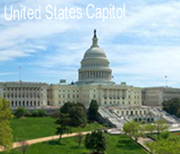FREE NEWS LINKS

HOME SEARCH
Updates & changes ongoing ....
---- Although this site is https-secure, we cannot guarantee that it or any provided links are safe; be sure your antivirus and other security systems are up to date.
Also see: Iran; sanctions; nuclear issues;
Jump to: 2019; 2020;
Undated: The Joint Comprehensive Plan of Action (JCPOA), known commonly as the Iran nuclear deal or Iran deal, is an agreement on the Iranian nuclear program reached in Vienna on July 14, 2015 between Iran, the P5+1 (the five permanent members of the United Nations Security Council—China, France, Russia, United Kingdom, United States—plus Germany),[a] and the European Union.
Formal negotiations toward JCPOA began with the adoption of the Joint Plan of Action, an interim agreement signed between Iran and the P5+1 countries in November 2013. For the next twenty months, Iran and the P5+1 countries engaged in negotiations, and in April 2015 agreed on an Iran nuclear deal framework for the final agreement. In July 2015, Iran and the P5+1 confirmed agreement on the plan along with the "Roadmap Agreement" made between Iran and the IAEA.[8]
Back to top
Under JCPOA, Iran agreed to eliminate its stockpile of medium-enriched uranium, cut its stockpile of low-enriched uranium by 98%, and reduce by about two-thirds the number of its gas centrifuges for 13 years. For the next 15 years, Iran will only enrich uranium up to 3.67%. Iran also agreed not to build any new heavy-water facilities for the same period of time. Uranium-enrichment activities will be limited to a single facility using first-generation centrifuges for 10 years. Other facilities will be converted to avoid proliferation risks. To monitor and verify Iran's compliance with the agreement, the International Atomic Energy Agency (IAEA) will have regular access to all Iranian nuclear facilities. The agreement provides that in return for verifiably abiding by its commitments, Iran will receive relief from U.S., European Union, and United Nations Security Council nuclear-related sanctions.
On 13 October 2017, U.S. President Donald Trump announced that the United States would not make the certification provided for under U.S. domestic law, but stopped short of terminating the deal.[9]
Back to top
IAEA inspectors spend 3,000 calendar days per year in Iran, installing tamper-proof seals and collecting surveillance camera photos, measurement data and documents for further analysis. IAEA Director Yukiya Amano stated (in March 2018) that the organization has verified that Iran is implementing its nuclear-related commitments.[10] On 30 April 2018, the United States and Israel stated that Iran did not disclose a past covert nuclear weapons program to the IAEA, which was required in the 2015 deal.[11][12]
On 8 May 2018, President Trump announced United States withdrawal from JCPOA.[13][14] Following the U.S.'s withdrawal, the EU enacted an updated blocking statute on 7 August 2018 to nullify US sanctions on countries trading with Iran.[15] In November 2018, U.S. sanctions came back into effect intended to force Iran to dramatically alter its policies, including its support for militant groups in the region and its development of ballistic missiles.[16]
https://en.wikipedia.org/wiki/Joint_Comprehensive_Plan_of_Action
-- 2019 --
Back to top
May 9: In a joint statement with the foreign ministries of France, the United Kingdom, and Germany, the EU urged Iran to respect the nuclear deal, and said it regretted new US sanctions imposed on Tehran.
The nuclear deal, formally known as the Joint Comprehensive Plan of Action (JCPOA), was designed to curb Iran's nuclear programme in exchange for sanctions relief.
On Wednesday, Tehran announced it would resume high-level enrichment of uranium if world powers do not keep their promises under the deal.
Back to top
Iranian President Hassan Rouhani said the remaining signatories - the UK, France, Germany, China and Russia - had 60 days to implement their promises to protect Iran's oil and banking sectors from US sanctions.
In response, US President Donald Trump's administration announced harsh new sanctions on Iran's steel, aluminium, copper and iron sectors as tensions surged between the decades-long rivals.
Francois Nicoullaud, a former French ambassador to Iran, said it was regrettable that EU leaders failed to protest the United States' hard line on Iran with the latest sanctions.
"The last American decision really attacks the heart of the nuclear deal," Nicoullaud told Al Jazeera. "The United States had the right under international law to leave the deal. But from outside, attacking the Iranian commitment - this is really a hostile attitude."
https://www.aljazeera.com/news/2019/05/eu-rejects-iran-nuclear-deal-ultimatum-regrets-sanctions-190509092136144.html
-- 2020 --
Back to top
Webpage visitor counts provided by